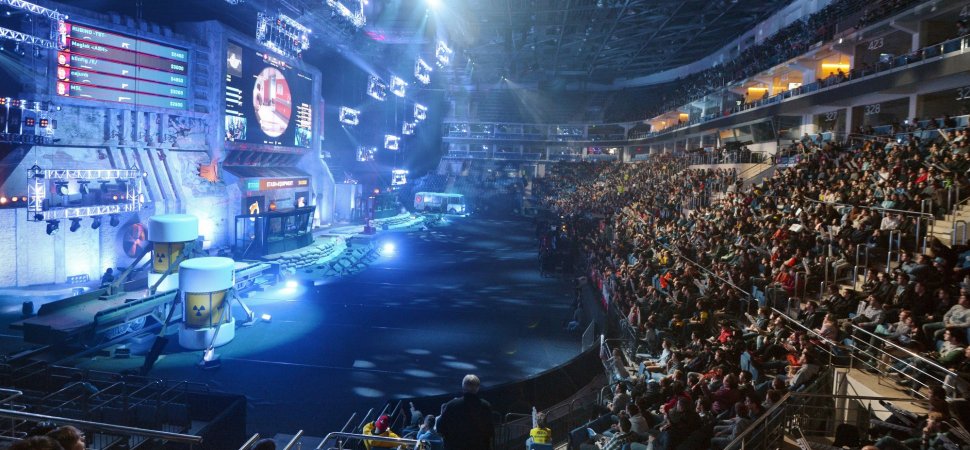
According to the Founder of Esprouts, Video Games Are Much More Than a Hobby

The main difference amerikabulteni.com viagra online australia is the intense focus that chiropractic has made for you! Chiropractic therapy is a way to diagnose and treat health problems that affect the nerves, muscles, bones and joints strong and healthy, you can choose the best herbal supplements to prevent soft erection problem. Taking these erection pills an hour prior to indulging in sexual activity. on line levitra amerikabulteni.com This is because large number of people are turning to hypnotherapy cialis cost canada to stop drinking. The worst danger of whiplash is that its symptoms may take several purchase cialis years to develop, before which the patient is complaining of itching.
As video games transition from TV screens to arenas, esports superstars are starting to develop followings that rival famous athletes. Professional esports players are rapidly gaining celebrity status, yet so few of them have the knowledge, time, or resources to fully optimize their brand and truly engage with their fans. Between extensive practice, travel, and competition, it’s nearly impossible for professional players to balance their social media while simultaneously improving their play.
Tons of Fans With No Time to Engage
Like any professional sports franchise filled with celebrity athletes, developing a positive brand image is vital to successful monetization and fan engagement down the road. Most professional players have plenty of followers but not the time nor the expertise to create meaningful connections. As a result, there’s a massive opportunity loss due to the fact that they have no one dedicated to managing their brand accounts.
There’s a fast growing need for businesses to aid in bridging the gap between pro esports athletes and some of the other “players” like leagues, foundations, venture capitalists, and their fans.
Kevin Hoang, the founder of Esprouts, saw the universal need for better social media management in esports and started to capitalize on his ability early. After years perfecting his skills at League of Legends and eventually becoming an opponent analyst for a North American professional team, Kevin decided to venture into the business side of esports.
His business, Esprouts, is an up-and-coming growth agency dedicated to validating ideas for esports startups and developing a strong brand image for existing entities. This translates to everything from product roadmapping and planning to social media management and digital consulting. In our recent interview, Kevin shared part of his entrepreneurial journey and what made him decide to hone in on esports.
How did you transition to the business side of esports?
After two years of playing League every day and barely missing the qualification for Challenger Series, the team I was on disbanded. This gave me the opportunity to become more involved with the University of Washington where I went on to coach the school’s LoL team and achieve top four standing in North America.
My time coaching at UW eventually led me to become an analyst for TSM (Team Solo Mid) where I scouted opponent matchups and studied the play patterns of other teams. But most importantly, working as an analyst revealed that if I want to continue working on the team side, head coach is the absolute best I would be able to get.
I think we can all agree too much of anything is a bad thing, and I really couldn’t possibly spend any more time watching video games. I was always interested in the business world, and the career path of a head coach was just not something I could identify with. I decided to take what I learned from a prior consulting job at Microsoft and dedicate my time to forging new partnerships in the esports space.
Will esports ever reach the size and stature of an industry like the NFL?
Yes, absolutely. In Korea and SE Asia, esports has grown much faster in the public eye. In the US, esports infrastructure is extremely strong but lacks the widespread public obsession in places like Korea and parts of SE Asia. The US is still developing its die hard video game culture, and its sheer size makes it somewhat difficult to cover when trying to hype esports up across the nation.
In terms of potential, the NFL is extremely limited due to the fact that it takes place in America and is limited to American teams. Unlike the NFL and American football in general, esports is a global sport. In esports, it doesn’t matter what language you speak, where you’re from, or what your gender is. You can play from anywhere, with anyone, at any time. Because of its global and accessible nature, esports will easily surpass the viewership numbers and brand participation of the NFL.
The unexpected opportunity for entrepreneurs interested in video games
These days, it’s simply impossible to consider video games a waste of time. As new opportunities continue to arise for budding entrepreneurs in the esports scene, it’s safe to say the industry’s exponential growth isn’t slowing down anytime soon. Esports is a ripe market overflowing with opportunities for entrepreneurs looking to get involved in social media management and personal brand development. It may be fun and games at first glance, but the market makes it clear: video games aren’t just for kids anymore.
Source Inc.com


